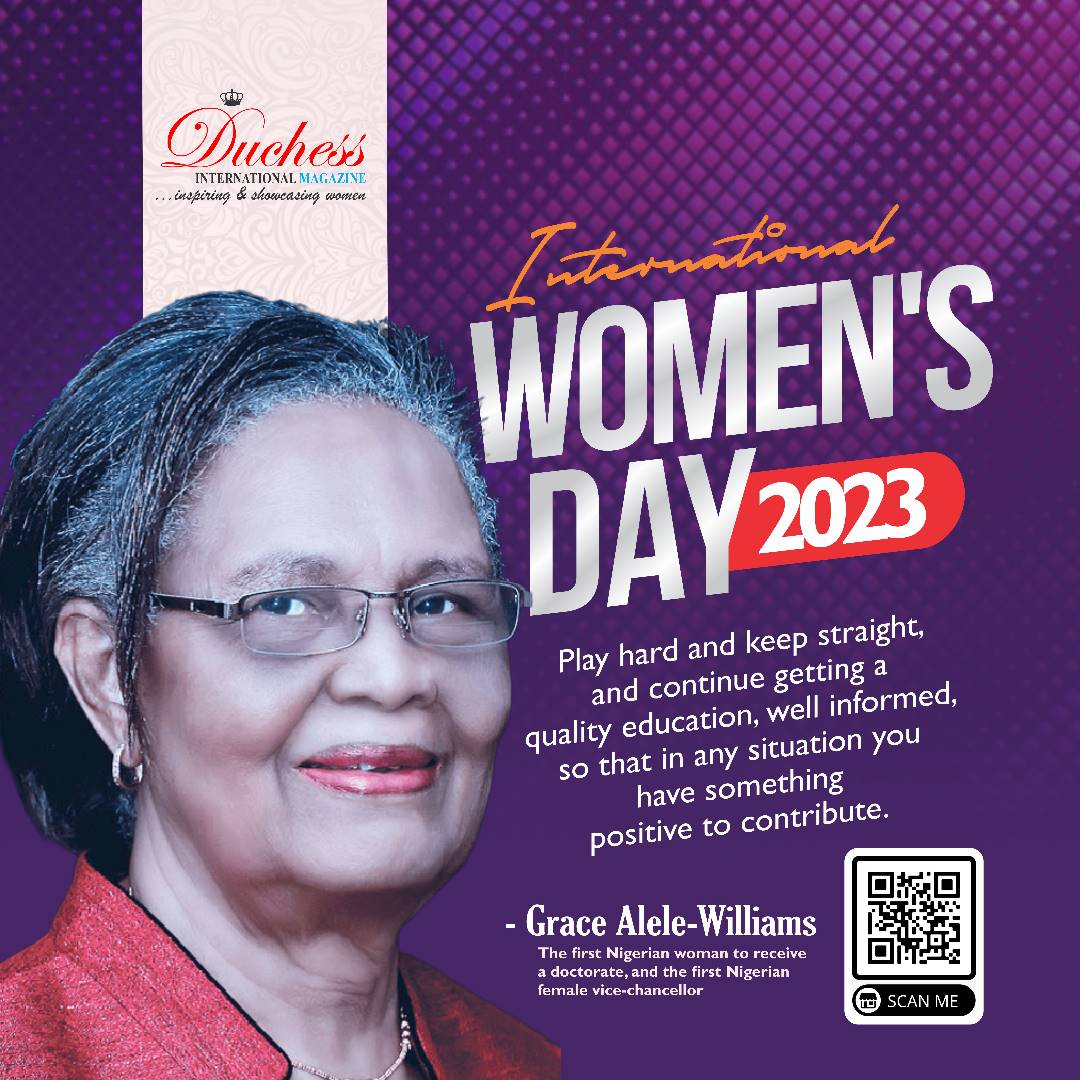In Nigeria, Grace Alele-Williams is a name that evokes reverence, admiration, and inspiration. A renowned mathematician, educator, and trailblazer, she is celebrated for her exceptional achievements, remarkable resilience, and unwavering commitment to excellence. Against all odds, she shattered stereotypes, broke barriers, and blazed a trail for generations of women in Nigeria and beyond. As the world marks International Women’s Day, her life and legacy are a testament to the power of determination, passion, and courage.
Born on December 16, 1932, in Warri, Delta State, Nigeria, Grace Alele-Williams grew up in a family that valued education and hard work. Her father, a railway worker, instilled in her a love for learning and a desire to excel, despite the challenges of poverty and discrimination. She attended the Government School for Girls in Warri and later went on to study at the Queen’s College, Lagos, where she excelled in mathematics and science. In 1953, she earned a scholarship to attend the University of Ibadan, where she would make history.
At the time, the University of Ibadan was the only university in Nigeria, and it was a male-dominated institution where women were viewed with suspicion and condescension. Nevertheless, Grace Alele-Williams refused to be intimidated. She studied mathematics with zeal, earning her Bachelor of Science degree with first-class honors in 1957. She then went on to earn her Master’s degree in mathematics in 1960, becoming the first Nigerian woman to do so.
Her academic prowess and intellectual curiosity led her to pursue a Ph.D. in mathematics at the University of Chicago in the United States. In 1963, she earned her doctorate, becoming the first Nigerian woman to earn a Ph.D. in mathematics and the first woman in West Africa to do so. She returned to Nigeria in 1963, eager to share her knowledge and passion for mathematics with others.
Grace Alele-Williams began her teaching career at Queen’s College, Lagos, where she quickly made a name for herself as an exceptional teacher and mentor. In 1972, she was appointed the Head of the Department of Mathematics at the University of Lagos, becoming the first woman to hold such a position in a Nigerian university. Her appointment was a historic milestone, not only for her but for all women in Nigeria.
As the Head of the Mathematics Department, Grace Alele-Williams was a tireless advocate for excellence and equity. She worked to improve the curriculum, recruit and train more female students and teachers, and establish partnerships with international institutions. She also served as a mentor and role model to countless students and colleagues, inspiring them to pursue their dreams and overcome obstacles.
In 1985, Grace Alele-Williams made history once again when she was appointed the Vice-Chancellor of the University of Benin, becoming the first woman to hold such a position in a Nigerian university. Her appointment was a groundbreaking achievement, not only for her but for all women in Nigeria and Africa. As the Vice-Chancellor, she brought her visionary leadership, intellectual rigor, and dedication to excellence to bear on the task of transforming the university into a world-class institution.
Under her leadership, the University of Benin experienced significant growth and development. She initiated numerous reforms, including the establishment of new faculties, the expansion of the library and research facilities, the creation of new programs, and the recruitment of more women and minority students and faculty. She also worked to enhance the university’s international reputation and establish partnerships with other institutions around the world.
Grace Alele-Williams’ impact on education was not limited to Nigeria alone. She was also actively involved in UNESCO’s efforts to promote education worldwide. In 1989, she was appointed as the Chairperson of the National Commission for UNESCO in Nigeria, a position she held until 1993. During her time as Chairperson, she played a vital role in developing education policies and programs in Nigeria and other African countries.
In recognition of her outstanding contributions to education, Grace Alele-Williams has received numerous awards and honors. In 1981, she was awarded the National Honour of Officer of the Order of the Niger. In 2006, she received the Lifetime Achievement Award from the Science Association of Nigeria. She was also awarded an honorary degree from the University of Port Harcourt in 2006.
Grace Alele-Williams’ legacy lives on through the numerous students she taught, the education policies she helped develop, and the inspiring example she set as a woman in a male-dominated field. Her tireless dedication to education and her unwavering commitment to promoting gender equality make her an inspiration to women and girls around the world.
Grace Alele-Williams was a pioneering figure in education, a trailblazer for women’s rights and an inspiration to generations of Nigerians. Her impact on education in Nigeria and beyond is immeasurable, and her tireless dedication to promoting gender equality and education for all will be remembered for generations to come. As we celebrate International Women’s Day, let us honor her legacy by working to ensure that every girl has the opportunity to receive a quality education and pursue her dreams.
As we celebrate International Women’s Day, we remember the remarkable achievements of Grace Alele-Williams and the countless other women who have fought for gender equality and paved the way for future generations. May we be inspired by their courage and determination to continue the work of building a world where all women have equal access to education and opportunity.
.
Joseph Omoniyi
https://twitter.com/Ola_josef?t=mFqIqPFZ07cIvBVM8-88lw&s=09
https://www.facebook.com/omoniyi.babasoro



